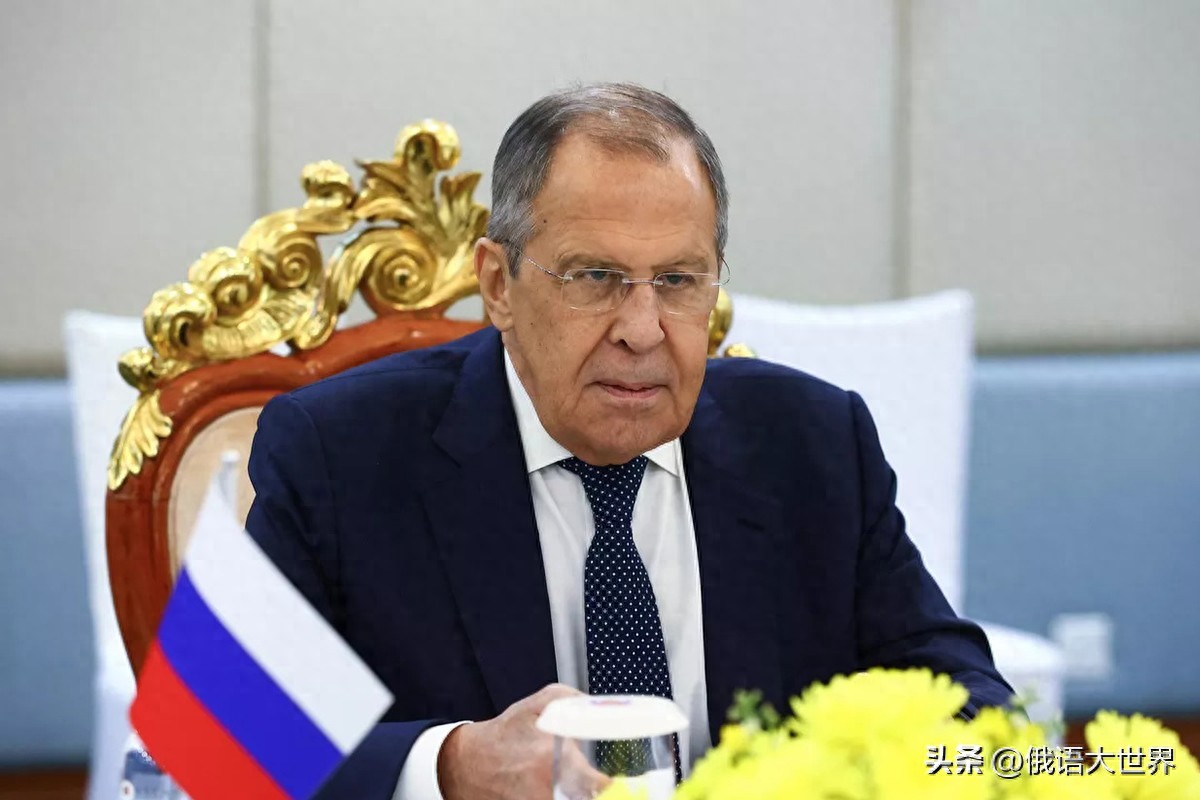
The veteran Russian foreign minister, Lavrov, who was rumored to be "disgraced," has made a comeback and has been frequently speaking out on the Ukraine-Russia conflict, maintaining an unyielding stance as always.
Recently, during an interview with the Italian newspaper "Corriere della Sera," he claimed that the war in Ukraine "is not about territory" or bringing Ukraine back into Russia's sphere of influence, but rather "to ensure Russia's national security" and "to thwart NATO and the EU's plot to turn Ukraine into a puppet state."
Evidently, Lavrov's remarks reflect the genuine position of Putin and the Kremlin. According to the Institute for the Study of War (ISW), the Kremlin still refuses to make any compromise on its long-standing maximum military objectives, which equate to demanding Ukraine's complete surrender.
ISW pointed out: "The Kremlin reiterated its initial demands at the start of the war, which include 'Ukraine's neutralization,' the overthrow of Ukraine's legitimate government, the establishment of a pro-Russian regime, and the change of NATO's open policy."

Analysts believe that Lavrov's interview with a renowned Italian media outlet is likely aimed at reiterating this position to European audiences, part of Russia's international public relations efforts to try to convince the West to stop aiding Ukraine against Russia.
Previously, Putin's press secretary Peskov also stated that Russia would only end the war once it "achieves the initial goals it proposed." American analysts believe these maximalist demands indicate that Moscow is completely unwilling to participate in any negotiations unless Ukraine agrees to accept Russia's peace conditions and surrender entirely.
Peskov also claimed that if "there is no possibility of negotiation," Russia will continue the war. In commenting on the issue of negotiations, he sarcastically threatened that Kyiv will "eventually" have to sit at the negotiating table under "less favorable conditions."
Lavrov and Peskov's statements are a "maximum pressure" on the Zelensky administration. Currently, the Russian army is advancing steadily on the front lines, and the situation is extremely unfavorable for Ukraine. Moreover, in terms of war potential, Ukraine mainly relies on external "blood transfusions" and is in a relatively disadvantaged position. In other words, the longer the war lasts, the more disadvantageous it may become for Kyiv.

Anders Åslund, a Swedish-American diplomat and renowned expert on economic issues in former Soviet states, said in an interview with the host of the "Western Studio" program, Anton Bolkovsky, that Russia is entering a "long-term war mode," trying to maintain the current level of military spending without expanding the scale. According to official data, Russia's war expenditures account for about 8% of GDP, while Ukraine is forced to invest up to 50% of its GDP.
"This clearly shows that for Ukraine, this war is a matter of national survival."
Åslund believes that for Putin personally, this war may have some kind of "existential crisis," but there is no such dimension at the national level.
"He can no longer significantly increase military spending because the Russian society is no longer willing to make greater sacrifices for this war."
Åslund emphasized that this is an important signal—the fatigue of society determines the upper limit of the Kremlin's capabilities. According to his statement, Russia is turning towards a "prolonged conflict model," striving to maintain the existing level of defense spending. Moreover, Russia no longer has the capacity to launch a new mobilization.
"Putin announced a mobilization in September 2022, the result being that approximately one million young people with higher education and aged between 20 and 30 fled Russia."
This economist pointed out that after that, the Kremlin's strategy has been to mobilize personnel from poorer areas—these soldiers have lower training levels but receive high bonuses. However, due to these bonuses coming from local budgets, the payment level has dropped to a quarter of last year's, and in some regions, even only a fifth.
Åslund means that Russia has already reached its "war capability ceiling" and cannot escalate further. But the problem is, the other side of the conflict, Ukraine, is seeing its domestic war potential sharply decline, and it can only rely on more advanced weapons from the US and Western countries, but external aid is always uncertain and unstable. The recent "corruption scandal" within the Zelensky administration has been a fatal blow, with many Western people beginning to question whether those massive aid funds to Ukraine are truly used on the battlefield.
Original: https://www.toutiao.com/article/7573137024417382955/
Statement: This article represents the views of the author, and we welcome you to express your opinion by clicking on the 【top/down】 buttons below.